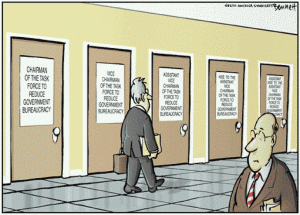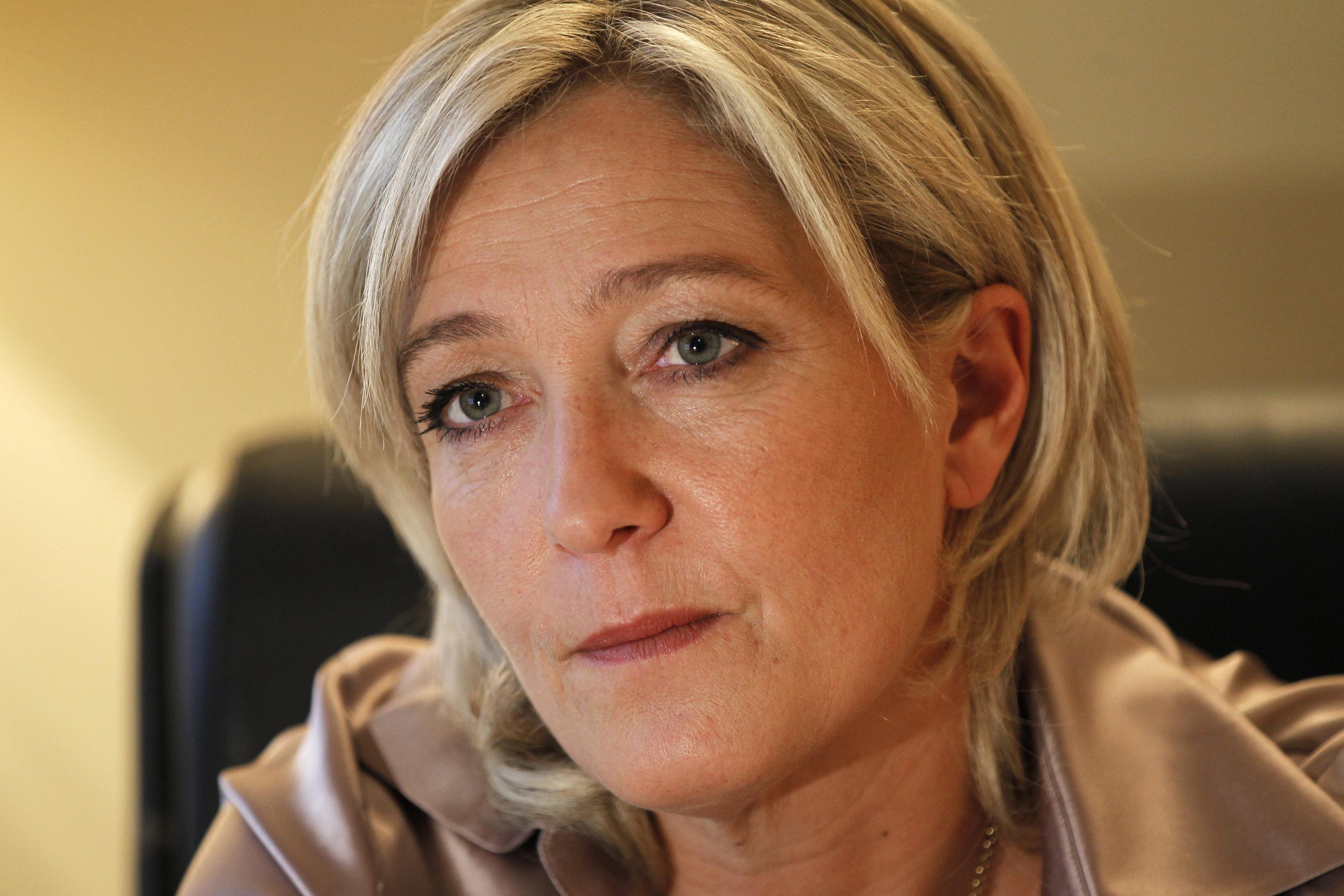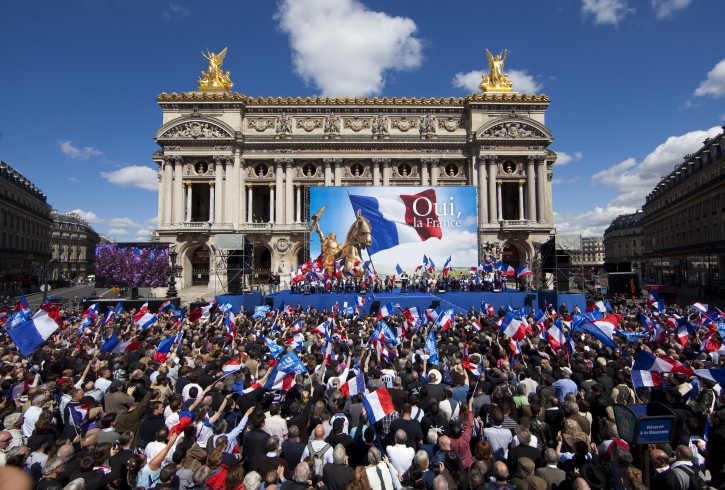By Thomas Desoutter

Could fascism return to Europe? It’s more likely than you may think. Marine Le Pen, leader of France’s Front National, has recently been floating around 30 percent in opinion polling for the next presidential election, ahead of any other candidate. Her father and predecessor, Jean-Marie Le Pen, has been convicted of racist or anti-Semitic speech at least six times and once referred to the Holocaust gas chambers as “a detail.” His notoriety has earned him the moniker “Devil of the Republic,” and while Marine has softened the party’s rhetoric, the apple does not fall far from the tree. The fascist Jobbik party, meanwhile, whose deputy leader suggested in 2012 that it might be “timely to tally up people of Jewish ancestry who live here,” won nearly 17 percent of the vote in Hungary in 2010, and the Neo-Nazi group Golden Dawn finished third in the Greek election in January. The explanation for this seemingly crazy phenomenon lies in the failures of the European Union and the multiple crises that are hitting it at once.
By many standards, Europe is succeeding admirably. Despite being devastated by all-out war seventy years ago, Europe is today a peaceful, cooperative, and generally prosperous continent, with a well-integrated infrastructure and transportation system and a single market that facilitates trade as well as movement of people and resources. Why, then, are many European countries experiencing a resurgence of Eurosceptic parties and right-wing extremism? Loyalties are shifting because the contentious issues of immigration, economic stagnation, and undemocratic political processes are being met with a restrictive bipartisan consensus of the center-left and center-right. In the past, public support for the European Union was much stronger on the continent. Socialists supported labor unions and government intervention in the economy while conservatives supported business and neoliberal economic policies. In today’s bizarre political world, nearly all mainstream parties in Europe support European integration despite declining support for the E.U., and socialist leaders such as François Hollande and Matteo Renzi are uniting with conservatives led by Angela Merkel and David Cameron to enact a fairly uniform policy program. This alliance has removed the traditional paths to moderate electoral dissent and left radical parties as the only remaining proponents of change.

The bulk of European unrest can be explained by an adage: it’s the economy, stupid. Most of the European Union is experiencing an economic crisis characterized by extraordinarily high unemployment, unsustainable debts, and stagnant growth. The crisis has multiple causes, many of which can be traced to the E.U. and its attempts at integration, such as the common currency (Euro) and the European Central Bank. The crisis began after the 2008 banking crisis in the United States, and it hit especially hard in Greece, Spain, Portugal, Italy, and Ireland. Greece had longstanding problems with deficits, corruption, and ineffective tax collection, but others like Ireland and Spain were actually regarded as fiscally responsible before the recession. While the 18-member Eurozone shares the Euro currency, and monetary policy is set by the European Central Bank in Frankfurt, individual nations set their own fiscal policies, and they don’t always have each other’s best interests in mind. In addition, the currency—and therefore inflation—is largely unresponsive to conditions unique to one country, so it can’t adjust to changes in the market.

The bipartisan European consensus has responded to the crisis with “belt-tightening” austerity measures, such as tax increases and spending cuts, which aim to reduce budget deficits. These measures are unpopular in many countries and run counter to mainstream Keynesian economic wisdom as articulated by Nobel laureate Paul Krugman. Whether or not one agrees with Krugman, it remains a problem that mainstream parties on both sides of the political spectrum have essentially given voters no choice in the matter. Extremist politicians have taken advantage of this democratic deficit by providing a home for opposing economic ideologies. Marine Le Pen, for example, has established herself as an economic nationalist who rejects the logic of international business and transnational government entirely. She has described her philosophy as “construction of a strong, protective and strategist state, reasoned protections at the boundaries, support to the small and medium enterprises, and get[ting] back the monetary sovereignty… to assure France’s recovery.”
Economic troubles are the biggest problem in the E.U. today, but certainly not the only one. Another contentious issue is immigration. Most E.U. member states are very homogenous, but there has been a recent trend of large-scale Muslim immigration to Europe. This development has led to widespread anti-immigrant sentiment in many member states. Poor immigrants are often accused of draining resources from government welfare programs and trying to bring Islamic law to the largely secular continent, as well as refusing to assimilate with the native culture. Though these accusations may be exaggerations or attempts to find a scapegoat, they are effective political messages because European nations, unlike the United States, were not built by immigration, and generally view multiculturalism less favorably.

The recent Charlie Hebdo attacks have increased European fears that growing Muslim populations will threaten their Enlightenment values, particularly freedom of thought and expression. In a New York Times Op-Ed days after the attacks, Marine Le Pen wrote, “the massive waves of immigration, both legal and clandestine, our country has experienced for decades have prevented the implementation of a proper assimilation policy…Without a policy restricting immigration, it becomes difficult, if not impossible, to fight against communalism and the rise of ways of life at odds with laïcité, France’s distinctive form of secularism, and other laws and values of the French Republic.” Because mainstream European leaders are reluctant to discuss this issue in these terms, Le Pen and her fellow extremists can easily step into the vacuum and connect with commonly held sentiments; even the comments of liberal Times readers were largely sympathetic.

Many Europeans dislike the government of the European Union, seeing it as a bureaucratic and undemocratic institution run by out-of-touch elites who don’t respect national sovereignty or self-determination. These skeptics have a point, as European policymakers tend to follow a program of austerity measures and permissive immigration laws that does not change when national voters make their opposition known through elections. It is not a large jump to conclude that European elites disdain popular government and average Europeans. These economic and social fears have led to strong electoral performances by Eurosceptics and extreme parties on both sides of the political spectrum; in the 2014 European Parliament elections, a quarter of the seats were won by Eurosceptic parties. Some see the emergence of France’s Front National and other less extreme parties such as the U.K. Independence Party and the True Finns as mere signs of bigotry and ignorance. Others vote for them because they address problems that mainstream parties in the E.U. largely ignore: unpopular immigration, austerity, unemployment, and a perceived loss of sovereignty and democracy. Le Pen has made these connections explicit by asserting, “All the statistics available to us show that globalisation has led to mass unemployment and salary cuts, which will end only when European salaries are brought into line with those in China or India…Mr. Lamy and all those in favour of uncontrolled free trade are not defending the common good but rather the interests of the financial and commercial institutions that pay them.” Regardless, the threat posed by far-right parties should not be shrugged off, as European history clearly shows that minorities are not safe during periods of economic distress.
The European Union is at a crossroads; its leaders face an untenable status quo. If mainstream parties fail to address stagnation and social unrest, these new realities may well continue to drive Europeans into the clutches of extremist parties, imperiling the European experiment. Mainstream political parties can confront this volatility by offering moderate solutions to these problems which will capture the vote of reasonable dissenters. Instead of abolishing immigration or expelling immigrants, they could suggest reducing and qualifying it. Rather than leaving the E.U. entirely, they could offer to introduce more popular referenda and decentralize decision-making on some domestic issues. They could create a plan for fighting unemployment and poverty in immigrant communities without giving an inch on secular European values. Finally, they could pursue pro-growth policies that target both corruption and unemployment within a cooperative framework rather than nationalizing or isolating their markets. But if European leaders continue to ignore this threat, we may soon wake up to a Golden Dawn.


